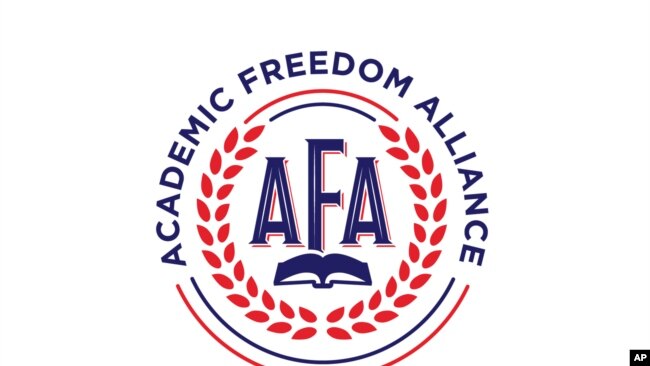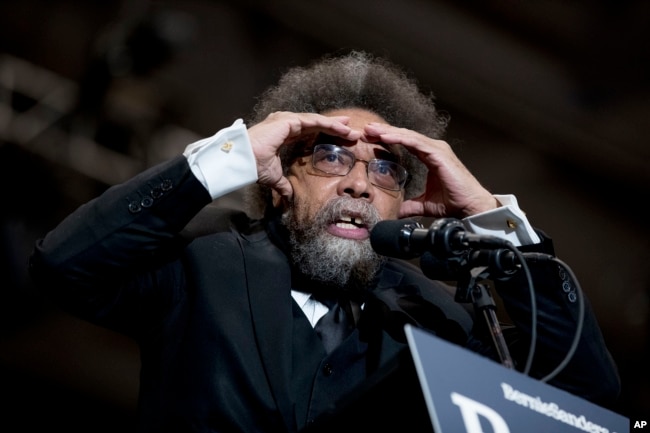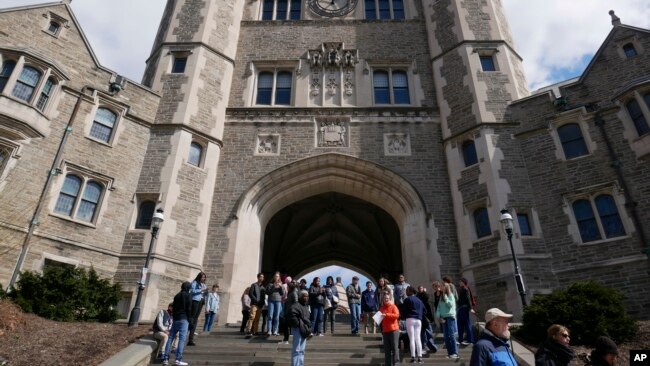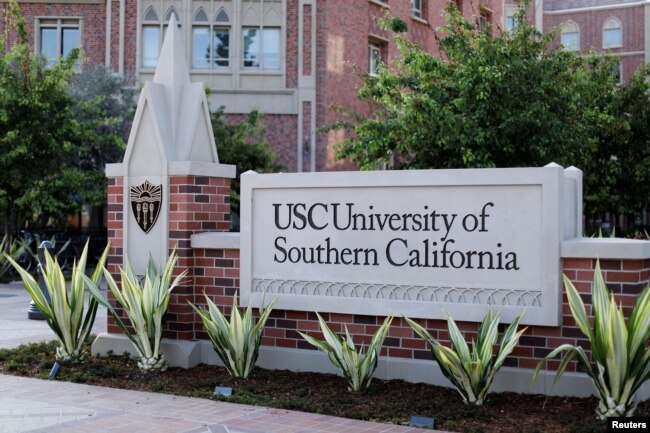表現・言論の自由とは
大学における表現の自由を守る戦いの話題です。
一般市民の中でも、コロナ禍でさらに”言論・表現の自由”の問題は顕著になったように思います。
どこまでが容認されるのか、差別との境界線はどこにあるのか。
言論・表現は時に暴力ともなり、武器ともなる。
アメリカの大学教授同盟の話題ですが、こんなことを感じました。
自由とは、”何も失うものがないこと”これは前回の歌詞の一節。
言論・表現における自由とは、”批判”ではなく”許容”ではないでしょうか。
許容量が減少しているように思います。皆さんはいかがでしょうか。
早速今日のVOAの記事から、
Here we go!! 英語を学ぼう!!
- College Educators Form Alliance to Defend Free Expression
- College Educators Form Alliance to Defend Free Expression
College Educators Form Alliance to Defend Free Expression
2 hours ago/2021/14/Jan.
米国の大学教育者約200名が、Academic Freedom Alliance(AFA)という非営利団体を結成しました。この団体は、大学教育者が"制裁や処罰を恐れずに発言し、指導し、出版する"ことを支援することを目的としていると、ウェブサイトで述べています。
この非営利団体は、ニュージャージー州にあるプリンストン大学の教授たちの間で議論されたことから始まりました。異なる意見に対する不寛容さが増していると考え、それに対抗する方法を模索していたことから始まりました。
AFAは、不当な攻撃を受けたと思われる人々を支援し、必要に応じて法的支援を行うことを計画しています。終身在職権を持つ教授のメンバーは年間50ドル、その他のメンバーは35ドルを支払うことになります。同盟では寄付も募っています。
プリンストン大学のKeith E. Whittingtonキース・E・ウィッティントン氏は、この同盟の学術委員会の責任者です。同盟の学術委員会の責任者であるプリンストン大学のキース・E・ウィッティントン氏は、表現の自由の問題について全国的な議論を進める方法を模索していると述べています。

Academic Freedom Alliance logo.
表現の自由とは、約100年前に教授たちによって提唱された“academic freedom,” 学問の自由という考え方を存続させたいと考えているそうです。ポイントは3つあります。1つ目は、外部からの干渉を受けずに授業を行う自由。2つ目は、学術的な問題について研究したり、執筆したりする際に、大学の指導者がその成果を一般に公開することを妨げないこと。3つ目は、大学の指導者に妨害されることなく、公の場でその時々のアイデアについて話すことができることです。
ウィッティントン氏によると、アメリカの大学では、"いまだにこれらすべてが脅かされている”と言います。
ウィッティントン氏によると、大学教授たちは、学生や管理者、学校に資金を提供している人々に嫌われる可能性のある考えを述べた場合、職を失うことを長い間懸念してきたといいます。大学教授の中には、学長を批判しただけで職を脅かされた人もいます。
「今でもそういったことで教員が脅かされることがあります」と彼は言います。
ウィッティントン氏と発起人たちは、そうした教授たちに何らかの支援を提供するために、この組織を立ち上げました。中にはそのような理由でグループに参加した人もいるといいます。
AFAのメンバーには、作家であり政治活動家でもあるCornel Westコーネル・ウェスト氏、彼は最近、ハーバード大学で終身在職権を得られずに退学、ヴァンダービルト大学を退任したCarol Swainキャロル・スウェイン教授などがいます。また、テキサス大学ロースクールの憲法研究者Sanford Levinson サンフォード・レビンソン氏;受賞歴のある作家Charles Johnsonチャールズ・ジョンソン氏、ワシントン大学元教授;ニューヨーク大学元教授でアメリカ自由人権協会元会長のNadine Strossenナディーン・ストローゼン氏などが参加しています。

FILE - 2020年2月10日、ニューハンプシャー大学のWhittemore Center Arenaで開催された民主党大統領候補バーニー・サンダース上院議員(I-Vt.)のキャンペーン集会で演説するコーネル・ウエスト氏(AP Photo/Andrew Harnik)
ウィッティントン氏によると、AFAに参加した教授の中には、最初は緊張していた人も多かったそうです。中には、反対の政治的意見を述べるメンバーがいるグループに参加すると、自分の支持者が心配するのではないかと心配していた人もいたそうです。
しかし、ウィッティントン氏はAFAを”純粋に思想を超えたグループ”と評しています。
「たとえそれが、自分にとって不快で間違った言論を擁護することになっても、また、個人的に批判されることになっても、これらの原則のために前面に出て立ち上がるべきだと説得するのは、いささか難しいことでした」と述べています。
メンバーの中には、言論の自由に関する紛争に巻き込まれた人もいます。例えば、ノースウェスタン大学のLaura Kipnisローラ・キプニス教授が2015年に書いた文書について、一部の学生が批判しました。その文書の中でキプニス氏は、教師と生徒が交際することを学校が禁止していることに異議を唱えました。
また、ハーバード大学教授で言語研究者のLaura Kipnisスティーブン・ピンカー氏は、2011年に米国言語学会のメンバーから、人種差別や性差別に鈍感であると批判されました。
ウィッティントン氏は、アライアンスの中心となるのは”言論の自由と学問の自由の問題”あると述べています。ウィッティントン氏は、この同盟が必要とされる理由として、最近の2つの例を挙げています。
ひとつは、南カリフォルニア大学のGreg Pattonグレッグ・パットン教授の例です。昨年の夏、彼はビデオ会議アプリケーションZoomを使って、話し言葉の沈黙を埋めるために使われる言葉について教えていました。
その際、いくつかの中国語の用語を説明したところ、英語での人種侮辱に聞こえると考える学生がいました。パットン氏は停職処分を受けましたが、学校側の調査により“the use of the Mandarin term” ”中国語の使用”には実際の目的があったことが判明し、復帰しました。
また、昨年の夏には、オーバーン大学のJesse Goldberg ジェシー・ゴールドバーグ教授が、ツイッターにメッセージを書き込んだことで、解雇を求める声にさらされました。そのメッセージとは、「警察は人を守らない。彼らは資本を守る。彼らは資本に代わって暴力を振るう道具である。」 オーバーン大学はこのメッセージを非難し、ゴールドバーグを教室から研究職に変更しました。
ウィッティントン氏によると、AFAは、伝統的でない意見や人気のない意見を持つ教授を”弾圧したり制裁したりする”動きに対抗しようとしているとのことです。
「闘争を続けることが重要だと思います。これらの原則が何であり、なぜ重要なのかを明確にし、このような論争の渦中にいる個々の教授を擁護する努力を続けることが重要なのです。」
ウィッティントン氏は、最初はメッセージを広めてくれる50人程度の教授からスタートしたいと考えていたそうです。しかし、強い支持を得て、それ以上のメンバーを獲得しました。
このグループは、まず、論争が起きたときにメンバーのために働くことから始めます。しかし、AFAのサポートが役立つような状況に巻き込まれる可能性のあるメンバー以外の人にも目を配りたいとウィッティントン氏は言います。
College Educators Form Alliance to Defend Free Expression
A view of Princeton University. Keith Whittington, a professor there, is one of the founders of the Academic Freedom Alliance. (AP Photo/Seth Wenig)
About 200 college educators in the United States have formed a non-profit organization called the Academic Freedom Alliance (AFA). On its website, the group says it aims to help college educators “speak, instruct, and publish without fear of sanction or punishment.”
The non-profit organization began out of discussions among some professors at Princeton University in the state of New Jersey. They wanted to find ways to fight against what they see as growing intolerance of differing opinions.
The AFA plans to support those they believe have been unjustly attacked and provide money for legal support if needed. Members who are professors with tenure will pay a yearly amount of $50, while others will pay $35. The alliance is also seeking donations.
Keith E. Whittington of Princeton University is head of the alliance’s academic committee. He said the group is looking for a way to advance a national discussion about free expression issues.
He said the group wants to keep alive an idea called “academic freedom,” which was put forward by professors about 100 years ago. It has three points. The first is the freedom to teach without outside interference. The second is the ability to do research and write on academic issues without university leaders preventing the public from seeing the work. The third is the ability to speak in public about ideas of the day without interference from university leaders.
Whittington said, “We still see all those things threatened” at American colleges.
Whittington said college professors have been concerned for a long time about losing their jobs if they express ideas that might be unpopular with students, administrators or people who give money to the school. Some college professors have had their jobs threatened for criticizing university presidents.
“We still see faculty threatened for all those things now,” he said.
Whittington and the founders created the organization to offer some support to those professors. Some, he said, joined the group for that reason.
Members of the AFA include writer and political activist Cornel West, who recently left Harvard University after not receiving tenure, and retired Vanderbilt University professor Carol Swain. Others in the alliance include constitutional researcher Sanford Levinson at the University of Texas School of Law; award-winning writer Charles Johnson, a retired professor at the University of Washington; and Nadine Strossen, a retired professor at New York University and former president of the American Civil Liberties Union.
Whittington said a number of professors who joined the AFA were nervous, at first, about joining. Some, he said, were worried that their supporters would be concerned if they joined a group that had members who expressed opposing political opinions.
But Whittington described the AFA as “a genuinely cross-ideological group.”
“And it was somewhat difficult to persuade people that they ought to be out in front and standing up for these principles even though sometimes that would mean defending speech that they found pretty unpleasant and very wrongheaded and despite the fact that sometimes that would lead them to be personally criticized.”
Some members have been involved in free speech disputes. For example, some students criticized Northwestern University professor Laura Kipnis for a document she wrote in 2015. In the writing, Kipnis disputed the school’s ban on teachers and students dating each other.
Another, Harvard professor and language researcher Steven Pinker, was criticized in 2011 by members of the Linguistic Society of America for supposed insensitivity to racism and sexism.
Whittington said the alliance would center “on free speech and academic freedom issues.” He named two recent examples of why he says the alliance is needed.
One example involved University of Southern California professor Greg Patton. Last summer, he was teaching using the video conferencing application Zoom about words used to fill silences in spoken language.
He described a few Chinese terms that some students believed sounded like an English-language racial insult. Patton was suspended, and only returned after a school investigation found that “the use of the Mandarin term” had an actual purpose.

